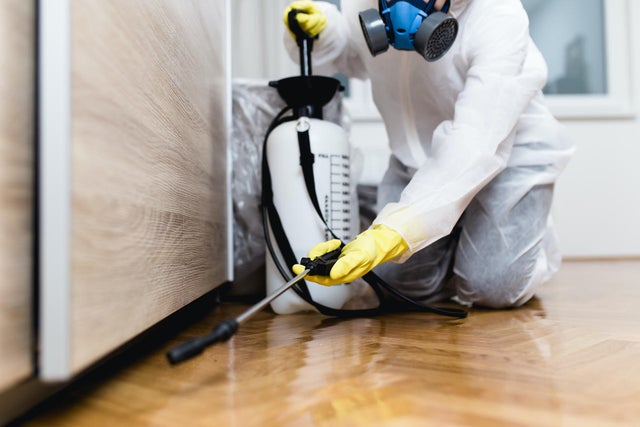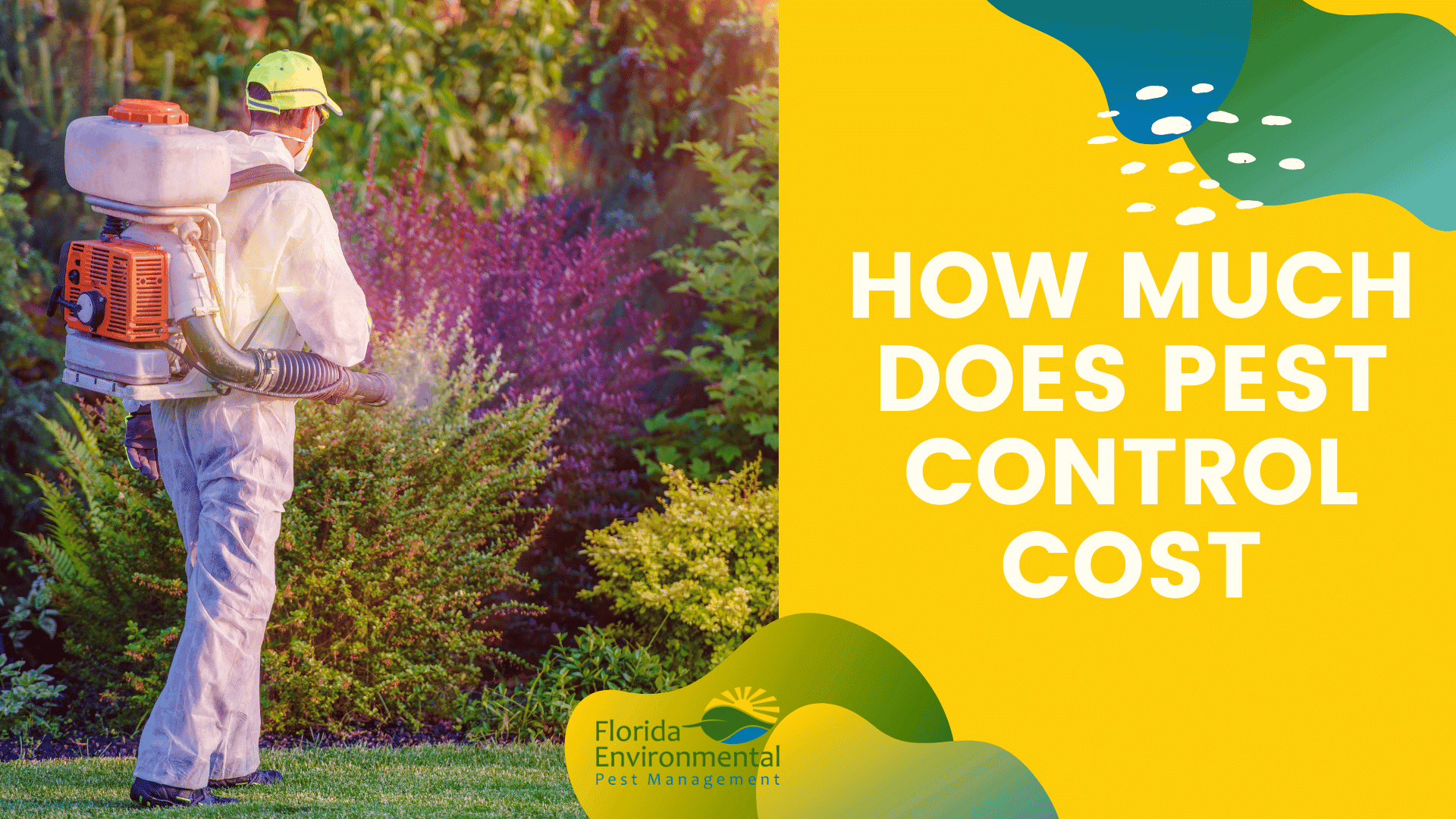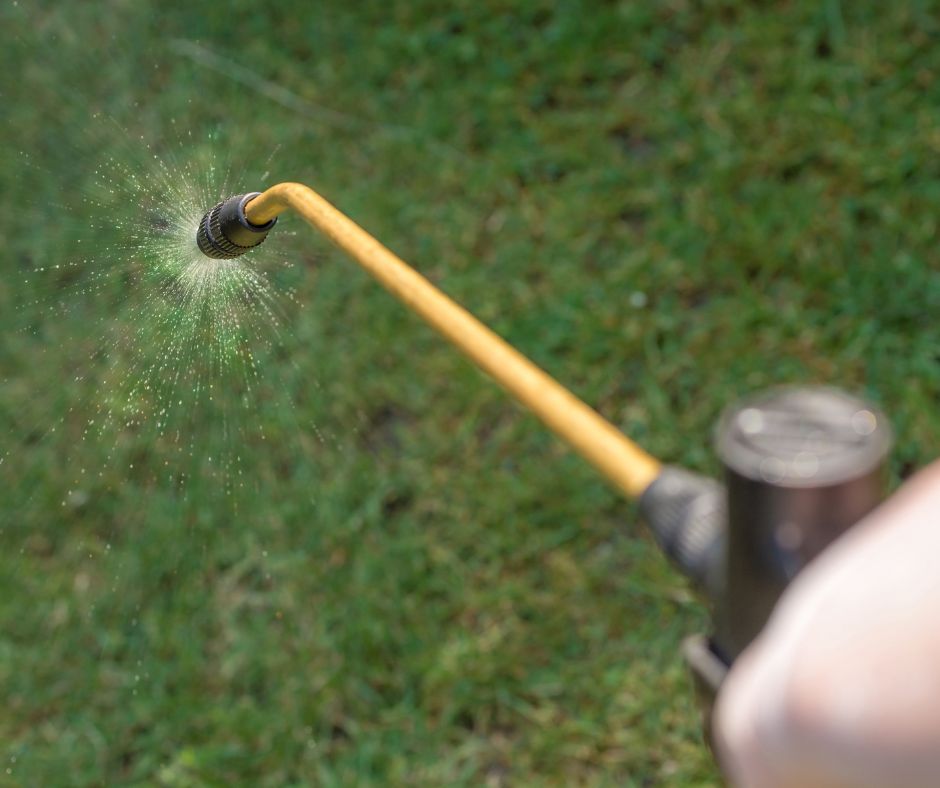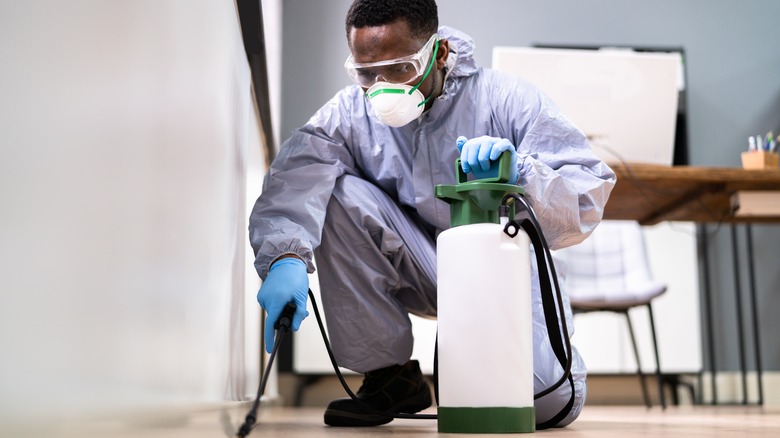Dependable Rodent Control Port Charlotte to Keep Your Property Pest-Free
Dependable Rodent Control Port Charlotte to Keep Your Property Pest-Free
Blog Article
Discover the Importance of Insect Control in Keeping a Healthy And Balanced Setting and Treatment Techniques

The Role of Bugs in Ecosystems
Bugs, often seen solely as problems, play a complex role in environments that is important for keeping ecological equilibrium. They contribute dramatically to various ecological processes, consisting of pollination, nutrient biking, and parasite control. Numerous insect varieties, such as bees and butterflies, are vital pollinators for a vast array of plants, which in turn supports biodiversity and food manufacturing.
Additionally, bugs function as prey for various killers, developing an essential link in food webs. This interdependence makes sure the survival of various species and assists control populaces within communities (Termite treatment Port Charlotte). Decomposer insects, such as certain beetles and fungi, are instrumental in damaging down organic issue, hence improving dirt and assisting in nutrition recycling.
Conversely, while pests can be helpful, their overpopulation or invasion right into non-native settings may disrupt these eco-friendly features. This complexity highlights the value of comprehending insect dynamics, as efficient insect management strategies must take into consideration both their eco-friendly functions and potential impacts on human tasks. Stabilizing pest existence while minimizing damage is vital for protecting the integrity of ecosystems and making certain farming performance.
Health And Wellness Risks Connected With Parasites
The existence of parasites in different environments extends beyond their ecological functions, as they also pose considerable health threats to humans and pets. Lots of pests, consisting of bloodsuckers, bugs, and rats, are providers of conditions that can have serious health and wellness effects. As an example, rats are recognized to send hantavirus and leptospirosis, both of which can result in extreme respiratory and renal problems, specifically.
Pests such as ticks and insects are infamous for spreading vector-borne conditions like malaria, dengue high temperature, and Lyme condition. These illnesses can lead to high morbidity and death prices, specifically in vulnerable populations. Furthermore, parasites like vermins and cockroaches can exacerbate allergies and asthma, adding to breathing troubles in people, especially those with pre-existing conditions.
Moreover, the presence of insects can cause emotional stress and anxiety and pain, affecting general well-being. Contamination of food and surfaces by insect droppings and stays can cause foodborne ailments, highlighting the importance of keeping sanitary conditions. Comprehending the health threats connected with insects is crucial in recognizing the need of efficient insect management strategies to guard animal and human health.

Benefits of Efficient Insect Control
Effective parasite control is important for maintaining a risk-free and healthy and balanced atmosphere, as it constantly alleviates the many dangers connected with pest infestations. One of the primary advantages of reliable parasite monitoring is the reduction of carcinogen. Pests such as roaches, rodents, and mosquitoes are vectors for illness that can impact both pet dogs and human beings. By discover this managing these populations, the likelihood of condition transmission is dramatically reduced.
Furthermore, efficient bug control safeguards building and frameworks from damage. Lots of insects, like termites and woodworker ants, can cause considerable structural damages that may call for expensive fixings. By proactively handling these homeowners, invasions and businesses can protect their investments.
An additional significant advantage is the enhancement of total top quality of life. A pest-free atmosphere adds to psychological well-being and decreases anxiety linked with infestations. Reliable bug control cultivates a more secure environment for pets and youngsters, making sure that homes continue to be shelters complimentary from unsafe chemicals and disease-causing microorganisms.
Common Insect Control Strategies

In the realm of pest monitoring, different techniques are utilized to fight invasions properly. These methods can be broadly classified into 3 main strategies: cultural, mechanical, and chemical controls.
Cultural control entails modifying practices to lower insect survival, recreation, and establishment. This may consist of crop turning, correct cleanliness, and environment manipulation, which collectively create an environment less helpful to pest proliferation.
Mechanical control employs physical techniques to pest pest control remove insects (Termite treatment Port Charlotte). Methods such as barriers, vacuums, and catches are generally made use of to straight get rid of pests from an area. This approach is particularly effective for managing rodents and insects without making use of hazardous chemicals
Chemical control includes the application of chemicals to handle bugs. These materials can be categorized right into fungicides, pesticides, and herbicides, each targeting certain kinds of insects. It is important to utilize these chemicals sensibly, adhering to security standards and guidelines to lessen prospective harm to non-target types and the environment.
Each parasite control strategy has its restrictions and benefits, and frequently, an integrated approach combining several approaches produces the most effective cause preserving a pest-free environment.
Sustainable Parasite Administration Practices
Sustainable parasite monitoring methods encompass a series of site here methods developed to decrease environmental influence while successfully controlling parasite populaces. These practices focus on using eco friendly approaches over chemical pesticides, thus minimizing the risk of damage to non-target species, consisting of valuable pests, wildlife, and people.
Integrated Pest Administration (IPM) is a cornerstone of sustainable practices, integrating biological, social, mechanical, and chemical techniques to manage bugs. For circumstances, biological control includes presenting natural killers or parasites to reduce parasite populaces. Social practices, such as crop rotation and polyculture, disrupt pest life process and boost community durability.
Mechanical approaches, such as traps or obstacles, can effectively stop parasite access without chemical intervention. Additionally, preserving healthy and balanced ecological communities through proper soil management, plant health and wellness, and biodiversity can normally mitigate bug issues.
Education and awareness are important components, equipping neighborhoods and people to acknowledge insect hazards early and carry out safety nets. Termite treatment Port Charlotte. By fostering a holistic technique that stabilizes bug control with environmental honesty, sustainable insect administration methods not just secure frameworks and plants however likewise contribute to a much healthier environment for future generations
Conclusion

Comprehending the health and wellness risks linked with bugs is important in recognizing the need of effective parasite administration strategies to guard human and animal health.
Reliable pest control is important for keeping a healthy and secure atmosphere, as it continually reduces the countless dangers linked with bug problems.Integrated Insect Management (IPM) is a foundation of lasting practices, incorporating biological, cultural, mechanical, and chemical methods to manage bugs. By recognizing the function of insects, identifying associated health and wellness threats, and employing diverse therapy strategies, a sustainable technique to pest monitoring can be achieved. Integrated Insect Administration (IPM) stresses a holistic method that minimizes harm to useful microorganisms while properly controlling insect populations.
Report this page